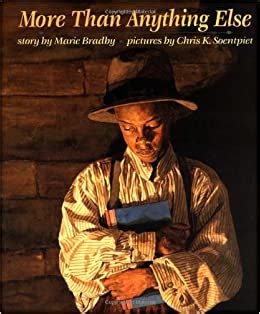A Quote by Rosecrans Baldwin
No one really knows the value of book tours. Whether or not they're good ideas, or if they improve book sales. I happen to think the author is the last person you'd want to talk to about a book. They hate it by that point; they've already moved on to a new lover. Besides, the author never knows what the book is about anyway.
Related Quotes
Reading a book should be a conversation between you and the author. Presumably he knows more about the subject than you do; if not, you probably should not be bothering with his book. But understanding is a two-way operation; the learner has to question himself and question the teacher, once he understands what the teacher is saying. Marking a book is literally an expression of your differences or your agreements with the author. It is the highest respect you can pay him.
Whether the author intended a symbolic resonance to exist in her book is irrelevant. All that matters is whether it's there. Because the book does not exist for the benefit of the author, the book exists for the benefit of YOU. If we as readers can have a bigger and richer experience with the world as a result of reading a symbol and that symbol wasn't intended by the author, WE STILL WIN.
It's really, really eclectic. It's not a business book [Girlboss], but it's still a book that should make you want to get up and do things and think about your life. And for a book that looks that beautiful on a coffee table, I think that's a very special thing. So it's hopefully a new genre I guess, of book. It was so fun to put together and fun to write, that was really a pleasure.
We're at a point nowhere it has to change. We have characters that are not alive that are alive in the book. We have characters that never appeared in the book. We have a lot of events that didn't quite happen the same way in the book. But there's so much in the book, stuff we've passed in the timeline that I really thought was awesome, that I really wanted to get to.
My husband, William Sutcliffe, the writer, is my first reader and in many ways my most important. That initial reading of the manuscript is crucial and irreplaceable and you want them to approach it as someone in a bookshop might, not knowing much about it. So I've got into this pattern of not telling Will anything about the book I'm working on. He often knows nothing about the book I'm working on at all until I give him the whole manuscript and ask him to read it. The book I'm working on at the moment he knows nothing about. No one does.
The burning of a book is a sad, sad sight, for even though a book is nothing but ink and paper, it feels as if the ideas contained in the book are disappearing as the pages turn to ashes and the cover and binding--which is the term for the stitching and glue that holds the pages together--blacken and curl as the flames do their wicked work. When someone is burning a book, they are showing utter contempt for all of the thinking that produced its ideas, all of the labor that went into its words and sentences, and all of the trouble that befell the author . . .
Frequently, an author gets "orphaned" at a publisher. What this means is that an editor buys their book, then ends up getting fired, promoted, or transferred to a different job somewhere else. It sucks for the author because suddenly the person who liked your book enough to buy it isn't around to help you edit and promote it.







































